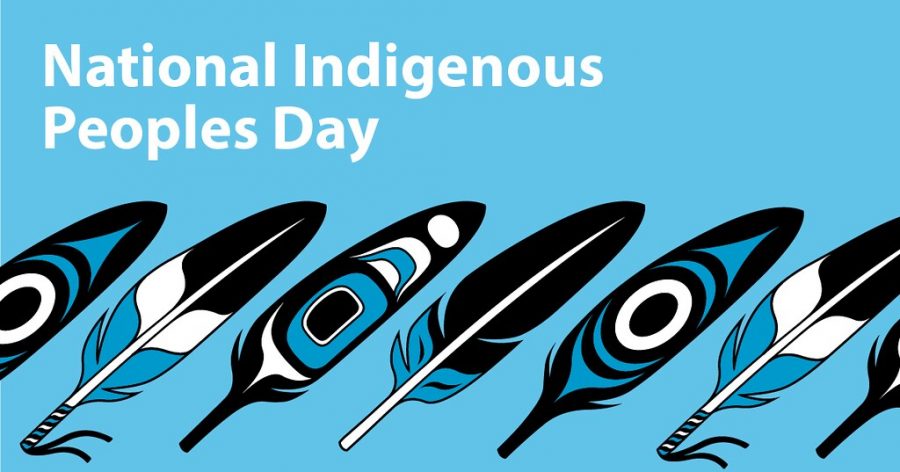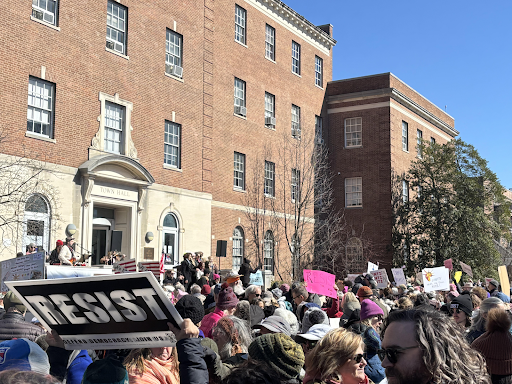Columbus Day vs Indigenous People’s Day
This is an opinion article piece. Tavishi Chattopadhyay is a sophomore at Mendham who writes for Global and Domestic News. All opinions expressed in the following editorial are her own and do not necessarily reflect the views of the Patriot.
Columbus Day has been a national holiday since 1971, however, since then the movement to replace it with Indigenous Peoples Day has also gained momentum. Columbus Day was originally declared a national holiday in 1934 and by 1971 it was given a day, the second Monday of October. It was declared a national holiday by Franklin Delano Roosevelt. The movement for Columbus Day to be replaced by Indigenous Peoples Day was started in 1977 by participants in the United Nations International Conference on Discrimination against the Indigenous Population in America. Columbus, however, doesn’t deserve his legacy since he started the genocide and discrimination against indigenous people therefore, Columbus Day really should be replaced with Indigenous Peoples Day.
There’s no shortage of criticism of Columbus, mostly because he was not only a fraud but also a racist. As much as Columbus is honored for discovering North America, he actually never did. Logan Chamberlain states, “Christopher Columbus never set foot in any region currently held by the United States… Columbus landed on an island best known in English as Hispaniola(or Espanola in Spanish).” To honor Columbus for an achievement that he never earned would be mindless. Along with that, Columbus also notoriously allowed for the enslavement of Indigenous people in Hispaniola, forced conversion to Christianity, and generally made native’s lives tortuous. History.com affirms this, “[o]n his first day in the New World, he ordered six of the natives to be seized, writing in his journal that he believed they would be good servants. Throughout his years in the New World, Columbus enacted policies of forced labor in which natives were put to work for the sake of profits.” Not only is Columbus honored for an achievement that he didn’t even accomplish, but he also contributed to the murder, enslavement, and general discrimination against Indigenous peoples. With all of this evidence, it’s clear that he shouldn’t be honored in history books and calendars because it justifies his actions and racism and honors him for a task he did not do.
Apart from Columbus himself being a racist fraud who enslaved and tortured native people, Columbus Day also encourages discrimination against indigenous people. Columbus Day to many represents “the fact the colonial takeovers of the Americas, starting with Columbus, led to the deaths of millions of Native people and the forced assimilation of survivors,” as stated by Dennis W. Zotigh and Renee Gokey. Columbus Day fuels discrimination against indigenous people by teaching them about someone who has historically abused them. It also immortalizes the pain and abuse that indigenous people face as a positive thing and reminds indigenous people of all the suffering that they have endured and continue to endure. Immortalizing Columbus minimizes their pain and all the bad things that he had done.
While a lot of indigenous people and allies rally for the replacement of Columbus Day, there are still some who want to keep Columbus Day. Mainly the Italian American population in the US rallies to keep Columbus day, their reasoning is that Italian Americans hold Columbus as an idol that helped them during the late 1800s and early 1900s when they were being discriminated against. They also view it as an attack on Italian Americans and while their point is completely understandable. The movement to replace Columbus Day is not an attack on Italian Americans. When indigenous people rally for the replacement of Columbus, they rally for the inclusion of indigenous people’s history in schools. The rally for better rights and treatment for indigenous people in the US. The replacement is more of a condemnation of Columbus and his actions towards indigenous people.
The replacement of Columbus Day is truly a way to help progress indigenous people’s rights and get rid of the positive spin on the mistreatment of Native Americans that Columbus Day portrays. Though there are good points against the replacement of Columbus Day, it’s replacement stands for a better society that will help a marginalized group. Which is why Indigenous People’s Day should replace Columbus Day as a national holiday.

Tavishi Chattopadhyay is a 11th grader at West Morris Mendham High School. They are part of the Service Club, Journalism, and GSA(Gender Sexuality Alliance)....






